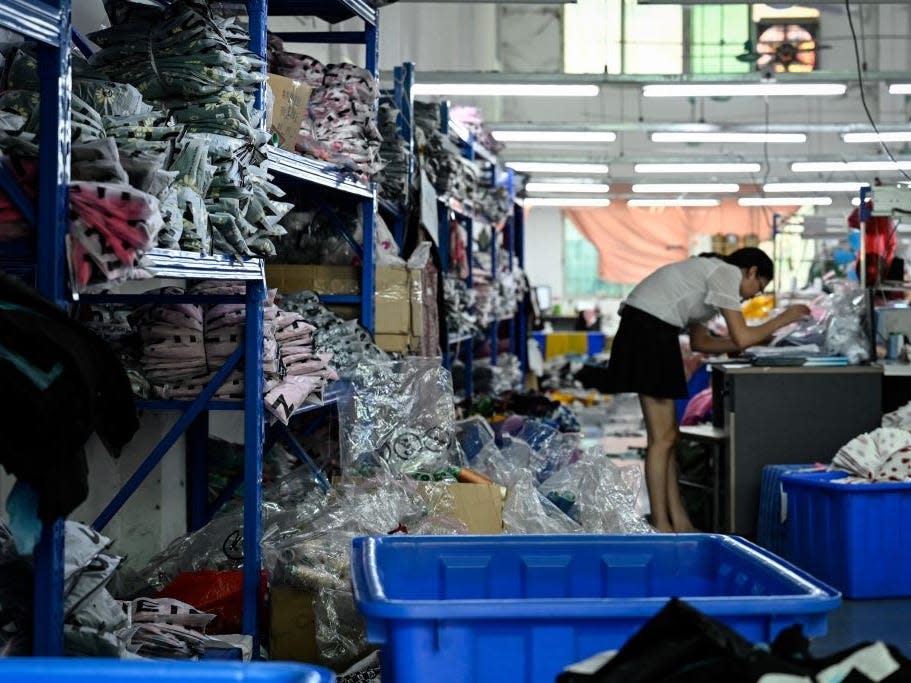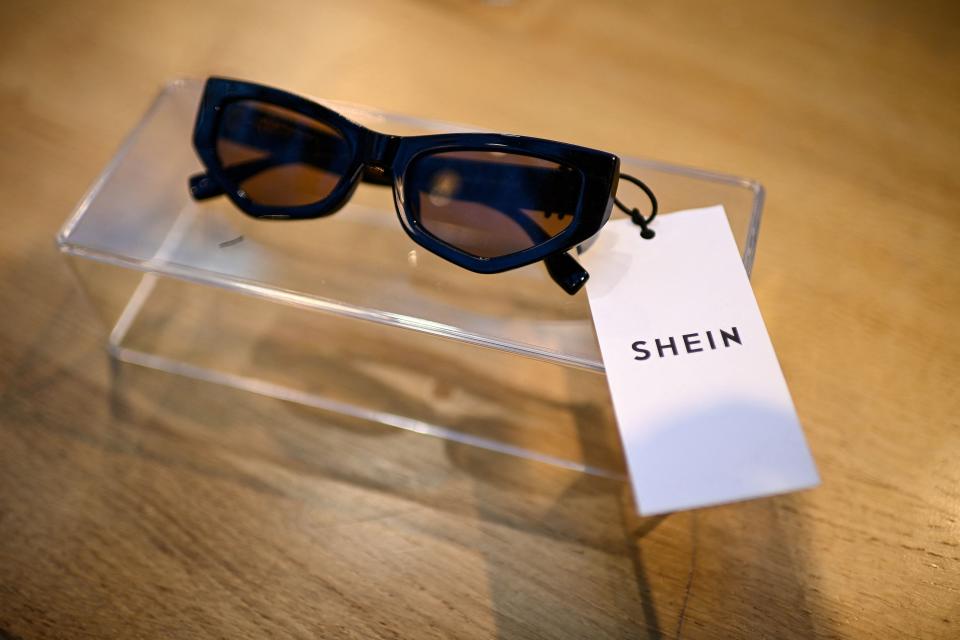Shein wants to sell the supply-chain tech it used to disrupt online shopping. Retail experts say brands may have concerns.

Shein plans to sell its supply-chain technology to other retailers.
The strategy could help grow its revenue, but experts say the brand's reputation may be an obstacle.
This article is part of "The Future of Supply-Chain Management," a series on companies' manufacturing and distribution strategies.
Shein is looking to sell the supply-chain technology that has been a big part of its success. Industry experts say that while it could boost the online retailer's revenues, getting brands to sign on could be an uphill battle.
Shein has developed a unique on-demand manufacturing model that enables it to turn around designs in a matter of weeks, compared with the several months more typical among its fast-fashion competitors.
Now, according to an investor letter from Shein's executive chair, Donald Tang, which was first reported by The Wall Street Journal in March, Shein is looking to sell that technology to other brands and retailers.
"Supply-chain technology is a top secret for a business like this," said Evelyn Gong, an assistant professor of operations management at Carnegie Mellon University's Tepper School of Business. "People have been curious, and now Shein suddenly is willing to share it with everyone who's willing to pay for this technology, including its competitors."
Shein was founded in China in 2012 and moved its headquarters to Singapore in late 2021. It's a private company and thus isn't obligated to disclose its financials, but Coresight Research estimated that it generated nearly $32 billion in revenue in 2023. Shein has grown a lot in a short amount of time, and its ambitions are even larger.
It confidentially filed for a US initial public offering in November, which is expected to be one of the largest public debuts in years. After facing regulatory struggles and criticism from lawmakers in the US, Shein is said to be exploring moving its IPO to the London Stock Exchange.
Shein has also grown beyond its fashion roots, selling products in categories such as home goods, electronics, and office supplies. It has also opened up its site to third-party sellers in a marketplace model similar to Amazon's.
But Shein's rise hasn't come without controversies — it has weathered allegations related to its labor practices and import strategy, among others — that could hamper its efforts to expand to new business lines, experts said.
A 'playground' for small designers and brands
Shein works directly with more than 5,000 suppliers, mainly in China. Its forecasting tools and high volume of customer data allow it to stay on top of the latest trends.
By showing it has consistently high demand for its products on social media, it can negotiate lower rates and minimum order quantities with its suppliers, Prince Ghosh, a cofounder and the CEO of the quality-control startup Factored Quality, said. This means it can manufacture only the most popular items and avoid sinking money into inventory that might not sell as well.
"Fast fashion has been around for a while," Ghosh said. "Shein, and now Temu and many others, really just built this modern version of it that they have owned a lot of themselves."

That on-demand model could appeal to small, up-and-coming brands that might want to experiment with designs before they fully scale production. Shein already does this on a smaller scale through its Shein X program, which it launched in 2021. The incubator program involves Shein manufacturing, marketing, and selling designs created by individual designers.
Making the tech available more widely could help partner brands gain valuable insight into inventory levels and forecast demand. Brands that aim to keep their prices low while keeping up with seasonal trends could also benefit. It's often very expensive for brands to develop prototypes themselves, especially in the US, so using Shein's supplier network could be more cost-effective.
"It would be a pretty good playground for individual designers and small brands or startups that are just starting out and don't have the resources to set up an independent supply chain themselves," Gong said.
Shein has also made use of de minimis, a provision in US import law that allows shipments of less than $800 to enter the country duty-free and with minimal inspection. It consolidates orders in fulfillment centers in China and then ships them by air to the US in individual parcels. By doing so, it can avoid paying duties that more traditional retailers would have to pay when importing their products wholesale. Brands partnering with Shein could benefit from this practice as well.
"That's how they're able to keep that low cost," Ghosh said.
A Shein spokesperson said the company's success did not depend on the de minimis provision.
"Our business model, focused on creating an on-demand production approach that measures and responds to customers' needs and preferences, is what drives our growth," the representative said.
Still, calls to overhaul de minimis have grown louder in recent months. US lawmakers and advocacy groups argue that the loophole hurts American textile businesses and allows for illicit goods to enter the country. Shein has also said it supports changes to de minimis as long as they're fair.
Brands might have some hesitations
Shein wouldn't be the first retailer to diversify its revenue streams by selling its technology.
Walmart launched Walmart Commerce Technologies in 2021 to sell services such as its artificial-intelligence-powered route-optimization tech and its in-store fulfillment capabilities. The German e-commerce giant Zalando similarly sells logistics services to partner retailers.
But Shein has reputational concerns to contend with. For one, it has drawn criticism and scrutiny following reports that laborers in its partner factories worked excessive hours in poor conditions. Lawmakers have called for the Department of Homeland Security to investigate whether goods sold on Shein and Temu and exported to the US were made using forced labor, which would violate the US's Uyghur Forced Labor Prevention Act.
The Shein spokesperson said the company had a "zero-tolerance policy for forced labor" and required its "contract manufacturers to only source cotton from approved regions."

"We take visibility across our entire supply chain seriously, and we are committed to respecting human rights," the spokesperson said.
Shein has also faced multiple lawsuits alleging it stole designs from other companies. If brands work with their network of suppliers, experts said, it could mean sharing their detailed design information, which some see as a risk. It's not clear whether Shein would get access to its partners' customer data or whether it could use that data to inform its own product decisions.
"We are continually investing in our review process and are committed to driving industry-wide advancement," the spokesperson said. "Shein suppliers and third-party sellers are required to comply with company policy and certify their products do not infringe third-party IP."
Working with established brands could help Shein improve its image as it prepares to debut on the public markets. CNBC reported that Shein had also applied to join the National Retail Federation, the largest retail trade organization in the US, but had been denied multiple times.
But if it's successful in selling its tech to brands it hasn't worked with before, Shein could expand its reach, Anand Kumar, an associate director of retail research at Coresight Research, said.
"Currently, Shein just sells the very low-cost products, but including various brands in its platform, it can sell products at various price ranges," he said. "It'll help to position it to compete with more global retailers."
Read the original article on Business Insider


